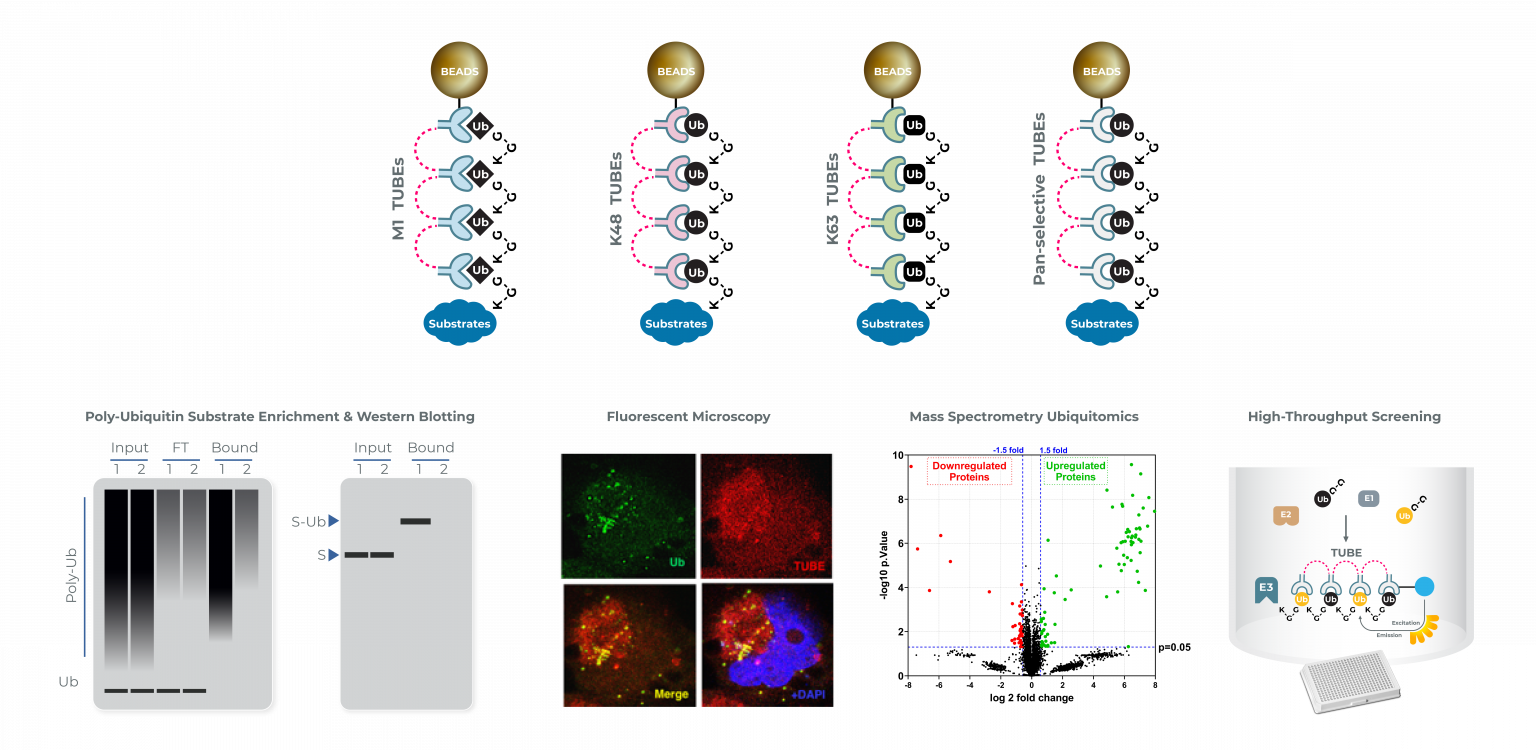Tandem ubiquitin binding entities or TUBE technology is based on the ability to harness the strength of multiple UBDs (Ubiquitin Binding Domains), circumventing the need for immunoprecipitation of overexpressed epitope-tagged ubiquitin or the use of ubiquitin antibodies. Antibody based ubiquitin proteomics is expensive for large scale studies, and, moreover, ubiquitin antibodies sold by most suppliers are notoriously non-selective, leading to artifacts. LifeSensors has developed technology to specifically isolate polyubiquitylated proteins from cell lysates and tissues. TUBEs are tandem ubiquitin binding domains (UBDs) that bind poly-ubiquitin with Kds in the nanomolar range. TUBEs have also been demonstrated to protect ubiquitylated proteins from both deubiquitylation and proteasome-mediated degradation, even in the absence of inhibitors normally required to block such activities.
Advantages of Choosing LifeSensors’ TUBEs (Tandem Ubiquitin Binding Entities)
- Cost effective compared to alternative technologies
- Kds in the high nanomolar range
- Protection of ubiquitylated substrate
- Wide variety of applications spanning beyond the TPD industry
Our Tandem Ubiquitin Binding Entities have transformed the ubiquitin community due to the powerful ability to selectively capture polyubiquitylated proteins. In addition to development of TUBEs that bind to all types of polyubiquitin chains (pan-TUBEs), LifeSensors has developed chain selective TUBEs that bind selectively to K48 or K63, or linear (M1) polyubiquitylated proteins. The latter are sold as K48 HF TUBEs, K63 TUBEs and M1 TUBEs, respectively. Utilizing pan-selective and chain-selective TUBEs with nanomolar affinity, LifeSensors has developed a variety of assays and services utilizing TUBE technology. Currently, TUBEs are being used by LifeSensors to develop a HTS that elevates PROTAC efficiency aiding TPD (Targeted Protein Degradation) based therapeutics.

